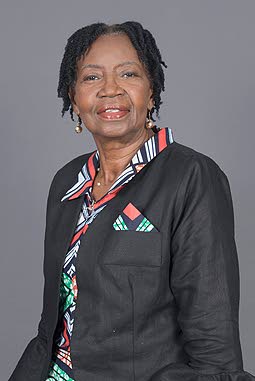Tobago’s Pearl, England’s celebrity

DR RITA PEMBERTON
Pearl Priscilla Prescod was born on May 28, 1920 to Martha Wade and James Jack William Prescod, the owner of Smithfield Estate. She was the eldest of her mother’s seven children. Her siblings with the same father were Jack (Cowboy), Socrotes and Kenwick (KP) Prescod, and, after her mother remarried, Sybil, Lera and George (Georgie) Phillips.
She has one son, Colin Prescod, a sociologist and activist of Notting Hill, London.
The family home was on Milford Road, between Wilson Road and Dutch Fort, Scarborough, but Pearl grew up spending much time in Mt Thomas, where her mother had a considerable amount of land.
Prescod attended Bishop’s High School and then worked as a hairdresser in Scarborough before migrating to Britain. With her deep, resonant contralto voice, often likened to that of Marion Anderson, she powered her renditions at the 1954 Music Festival to win, with high praise from the adjudicator, the highly-contested prize of a three-year scholarship to the Guildhall School of Music and Drama in London. At 34 she left Tobago and arrived in Plymouth, England on November 18, 1954.
Once in England her career took off in multiple directions as a singer, actress and activist, with each of her talents supporting the others. She trained as a classical singer, and in 1954 she obtained a role in her first play, Flesh to a Tiger, after which her acting career became established.
She worked at the office of the secretary of the West Indian Committee, and was auditioned by the BBC, from which she procured a number of contracts for television roles and plays. In 1956 she acted in the TV movie A Man from the Sun and in the TV series The Buccaneers in 1957. She acted in 12 TV series, three TV movies and at least nine plays. She became famous for her performances in Passionate Summer in 1958, No Kidding in 1961 and Thee Plays of the Sea in 1960.
Prescod also broke significant ground in London as the first black woman to appear at London’s Old Victoria National Theatre, playing the character Tituba in the play The Crucible, which was written by American dramatist Arthur Miller.
She was also one of the earliest Caribbean entertainers to appear on British television and was a member of the National Theatre Company. She was a celebrity in Britain and received widespread praise for her performances in Surprise Over Jamaica (1958), Avoid Kids (1960) and Eugene O’Neill: Three Takes on the Ocean (1960).
Prescod joined The New World Singers as the group’s lead soprano. This group was conducted by Avril Coleridge-Taylor and its membership included a number of singers from across the Caribbean.
While in London she joined the group of influential activists and political figures, including Trinidadian activist, member of the Communist Party and founder of Notting Hill Carnival Claudia Jones, and Pan Africanist and first wife of Marcus Garvey, Amy Ashwood Garvey. In 1963 she helped to organise, and with her singing led the London march on the US Embassy in support of the Civil Rights Movement march led by Martin Luther King in the US.
Prescod combined activism with acting when in 1964 she performed in Freedom Road, a TV production that depicted the major black artistes/singers of the day. Prescod was at the forefront of the anti-racist struggles of the late 1950s alongside other notable figures in the UK at the time.
During her time in Britain all her activities reflected her commitment to the anti-racial struggles. She helped to bring the plight of the black community in the United Kingdom to the forefront. She was successful as an actress in her portrayals in her numerous in television theatre productions.
Unfortunately, she died in the height of her career at the age of 46 of a cerebral haemorrhage in Kensington, London, on June 25, 1966.
Pearl Priscilla Prescod is an iconic figure and a beacon of inspiration to all who aim to achieve. Although she is at present an unknown in her native land, she must be duly recorded in the annals of the history of Tobago.

Comments
"Tobago’s Pearl, England’s celebrity"